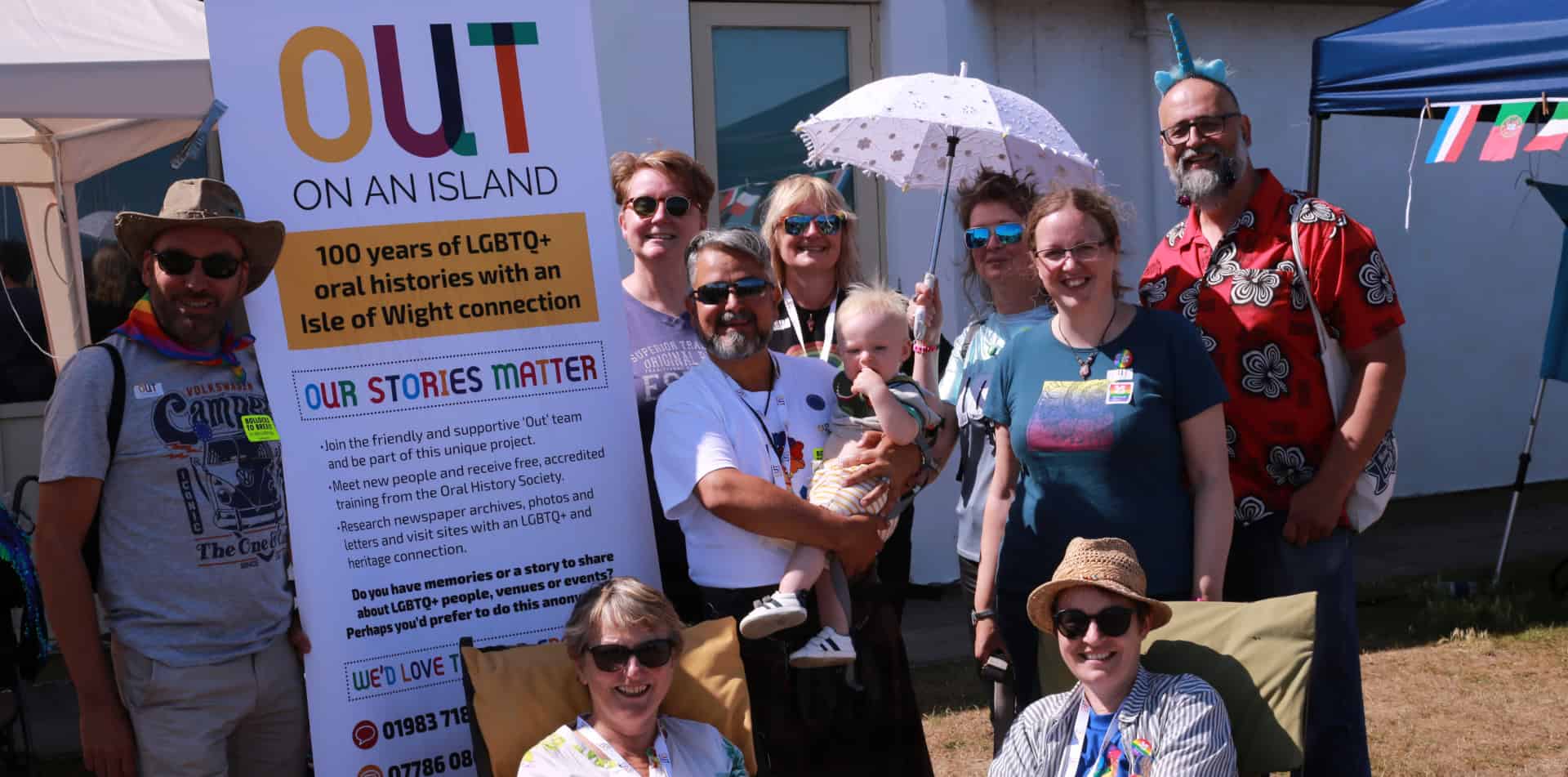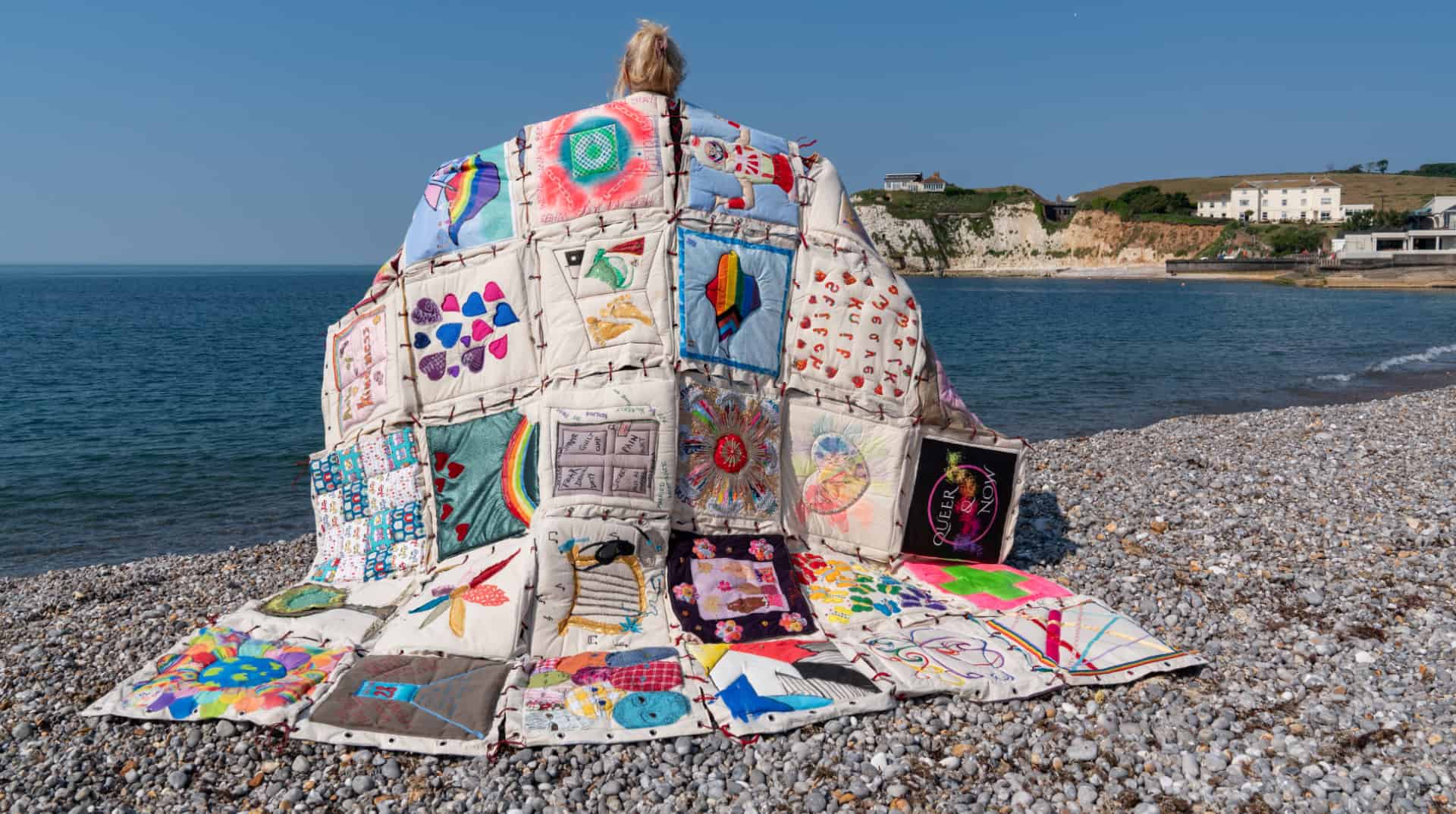The Isle of Wight is home to one of five projects across the South East celebrating working class histories.
Out On An Island is joined by projects in Margate, Sheerness, Shoreham-by-Sea and Hastings that are being funded by Historic England’s Everyday Heritage grants programme in 2025.
These projects will shed light on the LGBTQ+ heritage of Union Street in Ryde, explore the story of education for the Deaf in Margate, create a new ceremonial tradition for Sheerness, consider the impact of Shoreham Harbour locally and delve into the traditions of the fishing fleet in Hastings.
In total there are 30 new projects around England sharing almost £500,000.
Everyday Heritage programme
Heritage is all around us and can be a valued source of pride to local people. Every one of the projects is community-led, linking people to sometimes overlooked historic places on their doorstep and the stories behind them.
Launched in 2022, the Everyday Heritage programme aims to celebrate working class histories. This time, projects have a focus on buildings or places in rural or coastal locations. The programme has already funded over 100 projects, totalling £1.8 million.
Out On An Island – Celebrating LGBTQ+ Working Class Histories, StoneCrabs
£21,700 – Ryde, Isle of Wight
StoneCrabs is working with people in Ryde to explore and celebrate the LGBTQ+ heritage of Union Street. While tourism often centres on the Island’s grand historic houses and castles, this project will focus on the everyday heritage of LGBTQ+ people, nightlife and community spaces that flourished during the 1980s and 1990s.

Participants will investigate venues such as Bar 74, Patsy’s, The Redan and Prince Consort, examining their role in supporting the local LGBTQ+ community in a close-knit coastal town.
Through panel discussions and workshops, older community members will share their first-hand experiences and stories of these spaces. The project will help shape creative responses which may include poetry nights, guided tours, and exhibitions as well as foster self-confidence and pride in place for LGBTQ+ people locally.
Figueiredo: This is important to our community
Franko Figueiredo, Artistic Director, and Caroline Diamond, Project Manager, StoneCrabs, said,
“We’re excited to have Historic England’s support to explore the LGBTQ+ heritage of Ryde – ‘the town on the beach’.
“Our project will shine a light on stories that have often been overlooked, hidden or ignored.
“This is important to our community because it celebrates its involvement in shaping our collective memories and heritage.”

Wilson: These projects will shine a light on the stories of local, working class people
Duncan Wilson, Chief Executive, Historic England, said,
“Across England we are all surrounded by inspiring historic buildings, landscapes and streets, rural and coastal heritage. These projects will shine a light on the stories of local, working class people and their extraordinary contributions to our shared history.
“Connecting with our heritage helps us to feel that we belong and to feel pride in our local area. This programme gives communities the opportunity to recognise and celebrate their history in their own way, and to share untold stories about the places where they live so they can be enjoyed by more people, for longer.”
Heritage Minister Sir Chris Bryant said,
“The best bits of history are undiscovered nuggets that surprise us or make us think again. Everyday Heritage grants enable people across the country to dig up those nuggets and share them with a wider audience.”
Other new projects being funded by Everyday Heritage grants in the South East:
Margate’s Deaf Voices, 104 Projects CIC – £24,300 – Margate, Kent
A group of Deaf people from Margate will explore the history of the Royal School for Deaf Children to produce oral histories and a documentary film with 104 Projects. The school was England’s first public institution for Deaf children. It was founded in 1792 in London and later moved to Margate. The school closed in 2015 and the site is set to be redeveloped.
Participants from local deaf organisations will investigate the history of the school and interview former students who now live locally to shine a light on what educational provision was like for working-class Deaf people. The group will be guided by experts to learn research, oral history and filmmaking skills to celebrate voices from the Deaf community before the physical presence of the school disappears for good. The project team plan to premiere the film made at the Margate Film Festival in November and deposit the oral histories in Kent Archives.
New Rituals, Cement Fields – £16,750 – Sheerness, Kent
New Ritualsis a collaborative project by artist and choreographer Simone Kenyon, exploring and reviving historic working class community traditions on the Isle of Sheppey.
Working with an intergenerational group of local people and invited artistic collaborators, Simone will lead the co-creation of a new ceremonial tradition for the port town of Sheerness – a place defined by its industrial heritage and proximity to the sea. Together they will explore how ritual can act to preserve histories through storytelling, singing, movement, object and costume.
Inspired by the island’s rich working class history and the overlooked stories and experiences of local people, New Rituals seeks to rediscover and celebrate Sheppey’s unique community identity and establish a new ceremonial tradition that can be passed on to future generations.
The project will culminate in a public performance of the new ceremonial tradition in August 2025, welcoming the wider community to watch performers live on the street of Sheerness.
Port Stories, Figment Arts – £19,200 – Shoreham-by-Sea, West Sussex
Figment Arts will support local residents to explore the working-class heritage of Shoreham Harbour. The busy port is still a key place of work but the area is rapidly changing. Participants will research and uncover personal accounts, stories and experiences of the people and their families who relied on the port for their livelihood and leisure from the post-war period onwards, before these memories are lost.
Over 18 months, ‘Port Stories’ will encourage people to build confidence and learn new digital skills to co-create a series of interactive walks combining audio trails, augmented reality and video. These will be launched in 2026 at Eastbrook Manor Community Centre and at locations within the port itself.
Anchor Point, Hastings Contemporary – £18,500 – Hastings, East Sussex
This collaboration between Hastings Fisherman’s Protection Society and Hastings Contemporary will celebrate the intangible cultural heritage – the stories, traditions, and practices – of the fishing fleet in Hastings, co-curated by the fishing community.
Using Hastings Contemporary’s new mobile studio as a hub, this skills-sharing programme will support both organisations to grow relationships with the wider community. Initial ideas for activities include Saturday morning net-making and fish filleting workshops, flag-making and fish printing Family Days and the chance to engage with an oral history archive project.
Hastings Fisherman’s Protection Society is facing increasing economic and environmental challenges meaning this everyday heritage is at risk. This project aims to reach new audiences, promote this important local heritage and share skills within the wider community and future generations.
Find out more
You can learn more about some of the past projects Historic England has funded on the website.
Everyday Heritage Grants: Celebrating Working Class Histories is one of the cultural projects Historic England is delivering to shine a light on the diversity of the nation’s heritage.
News shared by Celia on behalf of Historic England. Ed





